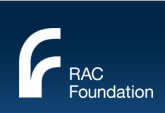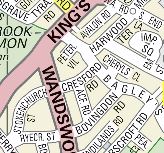H & F Council's Treatment of Motorists Back n Spotlight
New figures show £20 million last year raised from motorists
Hammersmith and Fulham Council's policy over traffic fines is once again in the spotlight with new figures analysed by the RAC Foundation showing the money each local authority in England generates from parking "activities".
The figures show that Hammersmith and Fulham has one of the highest surpluses in the country, totalling £19.5 million in the 2011-12. This made it England's fourth highest earner, and represented a rise of 39% over two years.
The figures revealed that while the vast majority of local authorities in England generate a surplus from their on and off street parking operations, with the countrywide total hitting a huge £565 million, the top five earners were all boroughs within London.
Current account surplus before capital charges (£ millions)
| 2011/12 | 2010/11 | 2009/10 | Change 2011 on 2009 | |
| Westminster | 41.6 | 38.2 | 34.6 | 20% |
| Kensington & Chelsea | 28.1 | 21.1 | 21.8 | 29% |
| Camden | 25.0 | 21.1 | 10.5 | 139% |
| Hammersmith & Fulham | 19.5 | 16.6 | 14.1 | 39% |
| Wandsworth | 16.1 | 14.4 | 12.2 | 32% |
| Brighton & Hove UA | 14.4 | 12.7 | 11.7 | 33% |
| Islington | 10.9 | 5.6 | 5.0 | 118% |
| Cornwall UA | 7.9 | 8.2 | 10.2 | 22% |
| Newham | 7.3 | 3.9 | 1.8 | 306% |
| Hounslow | 7.3 | 6.0 | 5.1 | 43% |
source: RAC Foundation
Hammersmith and Fulham has already come under fire in June, being accused of "highway robbery" with a culture of targets and revenue-raising inside its traffic enforcement department.
Private emails revealed by BBC Panorama on Wednesday June 12 at 7.30pm appeared to show officials congratulating each other on the number of tickets issued to motorists.
One email read: "Another record month, guys. Well done" while another said: "Well done. Another increase … holidays, as expected, brings back the traffic."
The programme visited the borough's worst hotspot, Bagley's Lane box junction with New Kings Road in Fulham, which has earned the nickname "money box".
More than 29,000 motorists were fined here in the year to March, yielding £2million for the council.
Across the borough, the council issued 81,458 tickets for moving traffic offences in 2012, more than four times the 2007 figure of 19,278.
Hammersmith and Fulham council denied the emails showed they were using motorists to generate income, telling the BBC they were simply "office banter".
The council responded to the programme's claims by saying it is "between a rock and a hard place" when it comes to keeping the borough moving, with traffic congestion a top concern for residents, but motorists understandably being unhappy when they receive a ticket.
The council claims the morning rush hour traffic delays have reduced by 13.5% in H&F since 2007, according to Transport for London (TfL) figures, due to road improvements, such as the new £2 million slip-road at the top of Fulham Palace Road, and tougher enforcement on inconsiderate driving.
The council claims that at the Bagley’s Lane box junction, 25% fewer tickets are now being handed out with only one in 500 drivers being fined and delays on the 391 bus using the Bagley’s Lane junction, have dropped by 51%.
You can read more about yellow box junctions such as Bagley's Lane, including a full list of junctions in the borough here.
The new data, studied for the RAC Foundation by David Leibling, comes from the annual returns that councils make to the Department for Communities and Local Government.
 Professor Stephen Glaister, director of the RAC Foundation, says:
Professor Stephen Glaister, director of the RAC Foundation, says:
" For many local authorities, parking charges are a nice little earner, especially in the Capital. Not all authorities make big sums. Several run a current account deficit and indeed of those with surpluses many will see the money vanish when capital expenditure is taken into account.
" But the bottom line is that hundreds of millions of pounds are being contributed annually to council coffers through parking charges and the drivers who are paying them have a reasonable expectation to see the cash spent on improving the roads.
" In fact it is enshrined in law – as underlined by the Barnet case last week – that profits gained from on street charges and penalties must be ploughed back into a very limited number of things including maintaining the roads."
August 2, 2013
.
